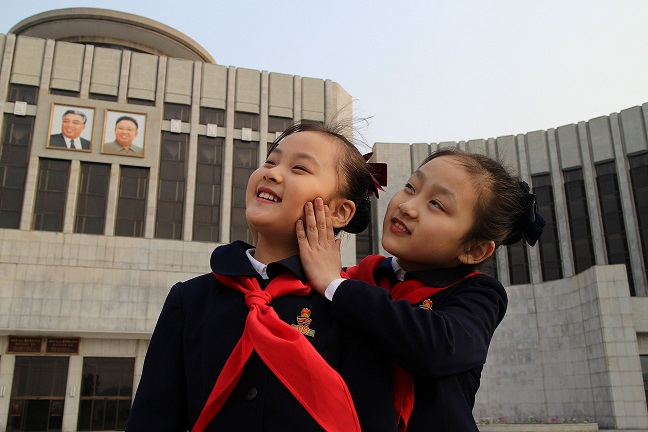Falling births a concern for North Korea, too
Food shortages, continued economic hardships weigh on fertility rate
By Choi Jae-heePublished : April 30, 2023 - 14:32

Similar to South Korea, North Korea is grappling with tumbling childbirths. The cause, however, is starkly different: famine and persistent economic hardships.
The communist state’s total fertility rate, the average number of children a woman bears in her lifetime, stood at 1.9 in 2022, according to a report titled “State of World Population 2022,” published by the United Nations Population Fund.
The figure was higher than the South’s 0.78 estimated in the same year, but still remains below the replacement level of 2.1, which would keep its population stable at just under 26 million, the report said.
The hermit state saw a gradual decline in births after a catastrophic famine in the mid-and late 1990s during which around 2 million people reportedly died from hunger.
Declining fertility rates led to an aging population. The number of North Koreans aged 65 years and older accounted for 9.75 percent last year, up 0.1 percentage point from a year earlier, making the North an “aging society” where the share of the population aged over 65 is above 7 percent, US Central Intelligence Agency data showed.
Low births and fast population aging are a concern for the North’s regime, as a shrinking workforce could take a toll on the country’s labor-intensive industries.
According to DPRK Today, a North Korean propaganda website, the country has introduced multiple policies to encourage more births, focused on cash grants and affirmative action.
It says mothers of three or more children are entitled to priority in receiving medical treatment at local hospitals, as well as government subsidies until their youngest child graduates from high school at the age of 17. They are also allowed to “freely request” child care leave if their children are aged 17 or under, according to the website.
North Korean watchers in the South tend to play down the effectiveness of pro-natal policies, given the nation's poor nurturing conditions that have worsened in recent years due to global sanctions for its nuclear and missile programs, unfavorable weather and border lockdowns caused by the COVID-19 pandemic.
Last year, North Korea produced an estimated 4.5 million tons of grain, a 3.8 percent drop from 2021, according to data compiled by the Ministry of Unification.
North Korea's mortality rate for children under age 5 was estimated at 15.4 per 1,000 births in 2021, while the comparable figure for South Korea stood at three, according to the United Nations Interagency Group for Child Mortality Estimation.



















![[Today’s K-pop] Treasure to publish magazine for debut anniversary](http://res.heraldm.com/phpwas/restmb_idxmake.php?idx=642&simg=/content/image/2024/07/26/20240726050551_0.jpg&u=)